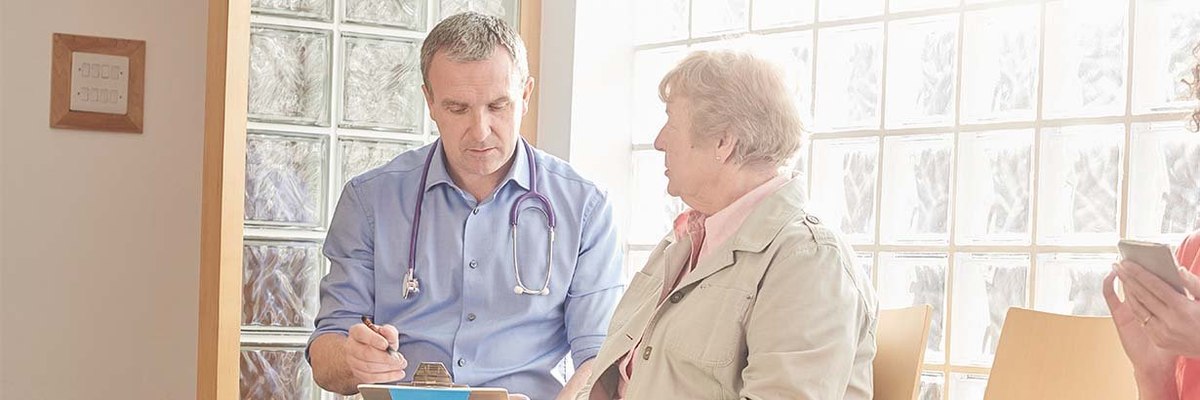Most Britons trust doctors, scientists, teachers and judges, but Reform UK voters have significantly less trust in most institutions
In the last few years, it has become common to hear discussion of a ‘crisis’ in trust in public figures, with Britons supposedly becoming increasingly cynical of everybody from politicians and journalists to academics and the police. It is argued such a collapse in trust has the potential to undermine the legitimacy of our democratic system. But is this necessarily the case – is there really nobody the British public trust to tell the truth?
YouGov data shows that for the overwhelming majority of Britons, there are in fact still several key occupations and institutions that they trust to be truthful. Eight in ten Britons (81-83%) expect family doctors and scientists to impart accurate information, with around seven in ten (70-73%) feeling the same about school teachers and judges. Two-thirds (66%) have faith in academics to be honest, with local police officers also commanding the trust of a majority of Britons (56%).
Nonetheless, this trust is not universal, even within particular institutions. Compared to local police constables, the public are more split when it comes to senior officers, with 48% trusting them to tell the truth and 44% having little or no trust in them.
Political institutions are viewed as less trustworthy. Only 18% of the public have at least a fair amount of trust in the ability of MPs to tell the truth, compared to three-quarters (76%) of Britons who doubt their honesty. People are more trusting in their local MP, but even then only a third (34%) believe they’ll be truthful. Little more than a quarter of the public (27%) trust the British government to be honest with them, while only one in three (33%) expect the same of prime minister Keir Starmer.
The tracker also suggests many of the public are not trusting of the media to tell the truth. More Britons (53%) say they have ‘not much’ or no trust in the BBC, than say they do (42%). However, this leaves them notably more trusted to tell the truth than journalists as a whole (23%) or controversial competitor GB News, which just a 24% of Britons trust to impart accurate information. This is consistent with the BBC tending to be more trusted than other news organisations.
Bottom of the options polled, though, are people who run major pressure groups, who are trusted by only one in nine Britons (11%).
Reform UK voters have significantly less trust in professions and institutions than other voters
Crucial, though, is the fact that trust for these institutions and occupations is not uniform across the British public, with noticeable divides when it comes to people’s partisanship. Labour and Lib Dem voters tend to be the most trusting, with a majority of Labour voters having trust in 12 of the 17 options polled to tell the truth. For Conservatives, this figure falls to seven, while only four of the organisations or jobs polled are trusted by more than half of Reform UK voters.
The extent to which Reform UK voters have lower trust in these jobs and organisations to tell the truth is striking. Excluding GB News, trust in the entities polled is 20 percentage points lower on average with Reform UK voters than it is among Conservatives and 33 points lower than among Labour voters.
For some, this is a case of Reform UK voters being a distinct category from supporters of the other three main parties. With local police officers, for example, two-thirds of Conservative, Labour and Lib Dem voters (65-68%) have trust in them, compared to only four in ten Reform UK voters (42%). Other establishment institutions, like judges, MPs, the government and journalists, all see this pattern of less variation between voters for the traditional three parties than between them and Reform UK voters.
In other cases, Labour and the Lib Dems sit at one end of the scale, Reform UK supporters at the other and Conservatives in the middle. This is true, for instance, with school teachers, who hold the trust of 86% of Labour and Lib Dem voters, 52% of Reform UK voters and, exactly in the middle, 69% of Conservatives. A similar pattern is true with other ‘knowledge-based’ professions, like academics and scientists.
The one significant reversal of the trend is with GB News, which holds a much higher level of trust with Reform UK voters than other groups. A majority of Reform UK voters (55%) have trust in the TV channel, compared to a third of Conservative voters (34%) and only one in seven Labour voters (14%). They are also the only segment of the public to give the channel a net positive score – even among the wider group of Leave voters, just 36% trust GB News, against half (51%) who have ‘not much’ or no trust at all in it.
How has trust changed over time?
Another aspect of the reported ‘crisis in trust’ is the belief that it has eroded over time, with recent years providing numerous major stories that have challenged a wide range of institutions.
Looking at the options polled by YouGov since 2003, the actual picture is somewhat varied. There are some cases where trust has fallen – the proportion of Britons saying they trust family doctors to tell the truth has, for instance, experienced a slow and gradual decline across the past two decades, falling from an average of 90% over the first five years of the time series, to 82% over the last five years. Faith in local MPs has experienced a similar fall from a 37% average between 2003 and 2008 to 31% since 2019, though remains in a broadly similar ballpark.
Starker has been the reduction in trust levels in the police. Between the first and most recent five-year periods of the trust tracker, average trust in senior police officers has fallen from 58% to 46%, while trust in local police officers has fallen 15 percentage points from 73% to 58%.
By comparison, trust in judges has shown no marked change over the last twenty years, and faith in teachers to tell the truth has also been steady since around 2007. Trade union leaders did see a notable increase in trust around 2021, but have seen a dip in the most recent polls to levels more typical of the start of our tracker. So, while there have been shifts over the last two decades, notable declines since 2003 are an exception.
Looking at a wider range of institutions over just the last three years shows even fewer clear current trends in a downward direction. Indeed, none of the institutions and occupations we have looked at have a significantly lower level of public trust today than they did in mid-2021.
This is not to say trust has always been steady, there have been cases where the public have likely responded to events. For instance, there was a damaging of trust in the British government around the time of events like partygate and Liz Truss’ premiership, with a trust level of 30% in July 2021 falling continuously below 20% between October 2022 and January 2024, including a low of 15% in January 2023. Since the election, it has now recovered to 27%. But the broader idea that trust has worsened significantly in key occupations and institutions the last few years is not borne out by the evidence.
Overall, our data shows there are clear issues with a lack of trust by the public in certain institutions, particularly those in the political and media spheres. However, most Britons maintain trust in knowledge-based professions, such as scientists, teachers and doctors, as well as those involved in upholding law and order, like judges and police officers.
While there have undeniably been some declines over the last two decades, significant downward changes have not been universal and have been partially driven by scandals for which the institutions themselves are responsible. And even where this is the case, numbers have typically stabilised in the last three years.
Who do you trust to tell the truth? Have your say, join the YouGov panel, and get paid to share your thoughts. Sign up here.
Photo: Getty









